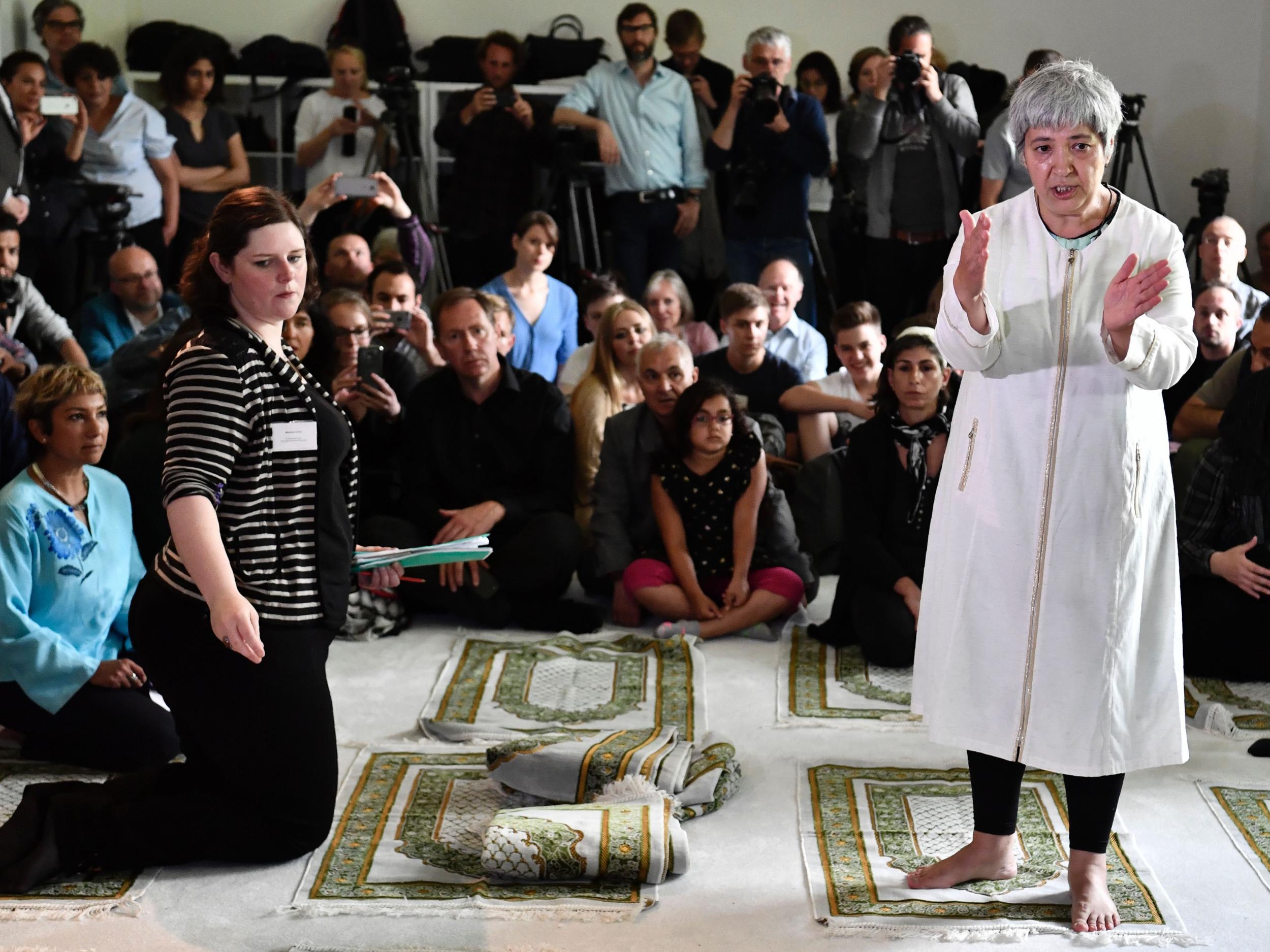Liberal mosque founder vows to keep it open despite Egyptian fatwa and death threats
Pro-Erdogan newspaper calls practices 'prayer of the perverse'

Your support helps us to tell the story
From reproductive rights to climate change to Big Tech, The Independent is on the ground when the story is developing. Whether it's investigating the financials of Elon Musk's pro-Trump PAC or producing our latest documentary, 'The A Word', which shines a light on the American women fighting for reproductive rights, we know how important it is to parse out the facts from the messaging.
At such a critical moment in US history, we need reporters on the ground. Your donation allows us to keep sending journalists to speak to both sides of the story.
The Independent is trusted by Americans across the entire political spectrum. And unlike many other quality news outlets, we choose not to lock Americans out of our reporting and analysis with paywalls. We believe quality journalism should be available to everyone, paid for by those who can afford it.
Your support makes all the difference.The founder of a new liberal mosque in Berlin has vowed to keep the building open in the face of death threats and heavy criticism from religious conservatives.
Seyran Ates told The Guardian she was sent “3,000 emails a day full of hate” about the Ibn-Rushd-Goethe Mosque which allows men and women to pray side by side, instead of segregating them.
But the 54-year-old remained defiant. “The pushback I am getting makes me feel that I am doing the right thing,” she said.
Open to both Sunni and Shiite worshippers, as well as members of the LGBTQ community, the mosque shares its premises with a protestant church.
But Ms Ates said no-one wearing a niqab or burqa is allowed entry, claiming the garments are a political statement.
The mosque's foundation was condemned by Egypt’s state-run Islamic organisation, Dar al-Ifta al-Masriyyah, which said that men and women praying side by side was incompatible with Islam
The country's al-Azhar university responded to the new institution by issuing a law banning the foundation of liberal mosques.
Diyanet, Turkey’s religious authority, also criticised it.
It said that its practices “do not align with Islam's fundamental resources, principles of worship, methodology or experience of more than 14 centuries, and are experiments aimed at nothing more than depraving and ruining religion".
The religious association linked the mosque to the network of US-based Muslim cleric Fethullah Gulen, who Turkish authorities have accused of being behind last year's failed coup.
Ms Ates has denied any connection to Mr Gulen.
Turkey's pro-government Sabah newspaper said the mosque practices "the so-called prayer of the perverse".
Ms Ates, who moved from Turkey to Germany as a child, has criticised the oppression of women in certain Muslim communities and called for liberal values to be upheld.
The German government called Turkish criticism of the new mosque, an interference in freedom of religion and opinion.
"I want to be very clear in rejecting all comments that clearly intend to deprive people in Germany of their right to freely exercise their religion and to limit the right to free expression of opinion," said Martin Schaefer, spokesman for the country's Foreign Ministry
Germany, which is home to an estimated 4 million or more people of Turkish origin, is already at loggerheads with Turkey on a number of issues.
Turkish politicians were barred from campaigning in Germany for a referendum on expanding President Recep Tayyip Erdogan's powers.
Turkey's arrest of a German-Turkish journalist working for a German paper also caused friction between the two nations, as did Turkey's refusal to let German parliamentarians visit an air force base hosting German planes.
Mr Schaefer said it was not for the government to determine how people practiced their religion and that it would protect freedom of worship just as it protected freedom of opinion and press freedom.
Join our commenting forum
Join thought-provoking conversations, follow other Independent readers and see their replies
Comments